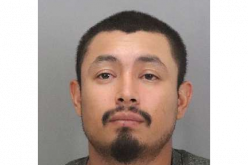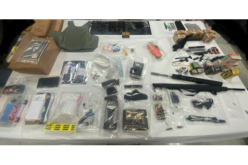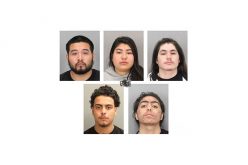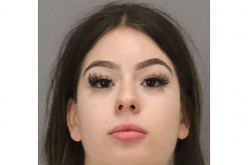25-year-old Eleni Jacobs faces one count of PC 470, forgery and PC 368 (d) elder financial abuse. On May 29 the Santa Clara Sheriff’s Department responded to a call reporting an incident in which an elderly female victim reported that she had several blank checks stolen by a previous female occupant.
The victim reported that in January of that year Jacobs had moved in with her in a temporary living arrangement, because she was having difficulties with her boyfriend. After living with the victim for several months she was able to move out again. Then Jacobs called the victim to report that she had taken one of her blank checks from her Wells Fargo account and made a check payable to herself in the amount of $356.00.
The victim then went online to check her bank account and found that Jacobs had forged seven checks in the amount of $1,800.00. On May 8 Jacobs had signed her first check for $130.00, then a second on the May 9 for $300, and then another for $250.00. Also on May 9 Jacobs signed another two checks for $200.00, and then on the May 12 she forged checks for $356.00 and $250.00, with the final check on the May 13 for $154.00.
Having left the residence, Jacobs no longer had access to the blank checks and had finally decided to tell the victim about the theft of them. However, when faced with the offence by arresting sheriff’s deputies at her home, Jacobs became irate with them and was placed in handcuffs. When asked if she would talk with Deputies about the incident Jacobs said, “You’re going to arrest me anyway, so no”. Jacobs was then taken to the Santa Clara Main Jail and booked for the offense.
According to Luis M. Ramos, Supervising Deputy District Attorney, Central Felonies Division in Santa Clara County, “It is important to know about who is in your home”. In most cases of identity theft and check cashing fraud, criminal’s access key information to help perpetrate the crime. Ramos said, “You can use a home safe with a combination to put social security cards, passports, and birth certificates”. Ramos added “You should also put the safe in a safe location in the home, only where you or a trusted family member has access”.
With today’s access to an online banking service, Ramos said, “Online banking is so easy, most people I know do it to pay their bills online using a credit card for a more secure payment”.
Ramos said, “You should check your bank account often, by checking your online balance to see if you have any suspicious activity”. If you do, you should call the bank and let them know about the fraud. “They can then stop the transition and it will get flagged and they can stop payment on that,” Ramos said.
Ramos explains that if someone is unauthorized to use your credit card, the credit card agency will make a call to you to, usually through a “follow through support” representative. They can notify you more quickly about any fraudulent activity on your account, and help you get your money back a lot quicker than a bank will. Ramos said, “In today’s computer world with online banking, making payments with an online credit card for certain transactions is the easiest way to help prevent fraudulent activity from occurring”.
If you are a victim of check fraud, Ramos said “You should report the fraud to a local police agency”. All local police and law enforcement agencies are trained to investigate check fraud. “If there is a crime, the report will be sent to our office and we will prosecute the case, but you need to report it to the police first”.
The Central Felonies Division is responsible for making sure the person responsible for the crime is held accountable. “Our job is to make the victim whole as much as we can” Ramos said. “It is our job to make sure they are convicted, and that full restitution is paid to the victim in the case”.
The DA’s office has a high conviction rates. As much as 85 – 90 percent of the cases end with a conviction. Ramos said, “In some cases however, people don’t cooperate and victims refuse to talk, or come forward to help prove the case against the suspect”.
















